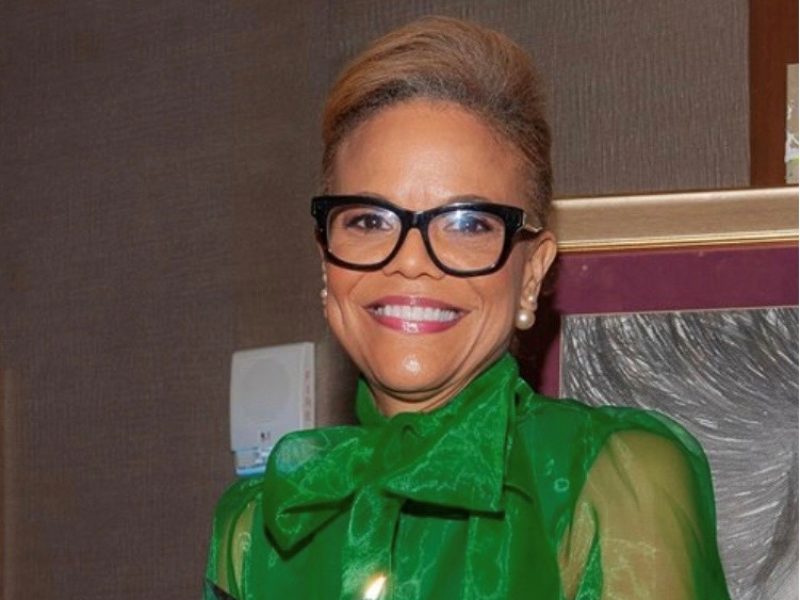According to Donate Life America, close to 90,000 people in the United States are waiting for a kidney donation — a fact that Kristi Jones, Chief of Staff for Governor Roy Cooper, could not ignore.
“Giving people what they need is giving them what they need,” said Jones, a proud living donor. “Some people need food, some people need money, some people need clothing, and some people need a kidney.”
Originally from Wilson, NC, Jones credits her altruistic nature to being raised in a tight-knit, compassionate family. “Growing up, I saw my grandparents do for other people and I saw my parents do for other people. Maybe I pushed comfort levels to a whole new level with the kidney, but at the end of the day, giving is giving. I don’t see it any differently than my mom cooking a homemade meal for someone who’s hungry or my grandmother helping somebody in need.”
Jones was first exposed to the world of organ donation when she witnessed her cousin receive a new kidney years ago. “I saw the fullness of his life following the transplant, and how he was able to go on and have a daughter,” she said. “I just remember thinking, wow, isn’t that amazing? Somebody’s generosity created a whole new life for him and he was able to grow a family – so it got me thinking about being a donor.”
For many, thinking does not necessarily translate into action — but after bumping into a friend at a Super Bowl party, who just so happened to be on the donor list, Jones decided to see if she was a match.
“After they called to say I wasn’t a match, I said, ‘Okay, but don’t I match to somebody out there in need?’” said Jones. “They said yes, and I said, ‘Well, let’s just keep going!’”
This decision to move forward was not taken lightly. Prior to her donation, Jones had to be fully vetted — which is no small feat.
“It starts with education and a screening questionnaire to determine if there are any absolute contraindications to considering the person as a donor,” said Amy Woodard, Living Donor Coordinator at UNC Hospitals. “If that is acceptable, the potential donor undergoes a series of medical tests, including lab work, x-rays, CT scans, and doctor visits to determine if they are healthy enough to donate and their kidney function is good enough to do so. Donors are also evaluated by a social worker and psychologist to address any psychosocial concerns. We must make sure potential donors are not being pressured or coerced in any way.”

Despite a laundry list of steps, living kidney transplants provide the best outcome for people with end stage kidney disease and offer a much shorter wait.
“With a living donor, there is no significant waiting time and a kidney from a living donor works better and lasts longer than a kidney from a deceased donor,” said Woodard. “Living kidney donation surgery is done laparoscopically and has very little down time. Other than the post op recovery period, donors return to normal activities and health post donation.”
Jones donated her kidney to an anonymous recipient on Sept 6, 2011 — but prior to that, she kept her plans largely under wraps.
“I didn’t tell anybody until I had made my decision, and it was at the end of the process,” said Jones. “As you can imagine, my parents were very anxious. My father, who had some health challenges, said I might need your kidney, save it for me. To put him at ease, I did check it out, but we would not have been a match. My mom was very concerned just about what the donation meant — it felt like a lot to take an organ and give it to somebody else, but the way we kind of resolved it was that we were grateful that I was the giver and she wasn’t the mother of a person in need. I said to her, ‘right now, mama, somebody is praying that a miracle will come through for their child. Let’s just be grateful that we’re on this side of things.’”
Despite her family’s hesitations, Jones was determined to give the gift of life to whoever needed it the most — whether she knew them or not.
“I believe we should normalize living donations in all kinds of ways,” said Jones. “To people who need kidneys, talk about it more. For those who are only willing to donate to a family member, it’s the same process. The kidney is out of your body whether you gave it to a parent or to somebody you don’t know. Let it be less about who you give it to. Just stick to your decision and keep going forward.”
The entire donation process was facilitated by UNC, described by Jones as “wonderful to work with” and “the best team ever.”
“They were just so careful about every little detail that I asked for, and it was beautiful,” said Jones. “Obviously the surgery is much easier for the donor than it is for the recipient. Sometimes you remember things that were traumatic, but it was not traumatic — it was just a simple laparoscopic surgery, from my perspective.”
While she chose not to meet the recipient, they did exchange letters, thanked each other, and wished each other well. Now, after over a decade of keeping her decision private, Jones is ready to speak publicly about her journey.
“I didn’t want it to be about the act — it was something that I wanted to do, and I just did it,” said Jones. “I checked it off my list and kept on going. I didn’t make a big deal about it, and I didn’t want others to make a big deal about it. Then I met Delores Evans, who connected me with HonorBridge. She received a kidney from her son, and she reminded me that my story could help other people. And in the end, it goes back to the way I was raised, we are all called to help those in need.”
Delores Benton Evans had struggled with kidney disease for over 30 years. Her son, Ryan Benton Evans, underwent testing to see if he could be a living donor to his mother, but could not due to a blood disorder. In 2008, Ryan died in a tragic accident. At the time, Evans still believed she could not receive one of Ryan’s kidneys. In the end, she was able to — and the child she gave life to ended up saving her own.
“I met Chief of Staff Kristi Jones at Governor Roy Cooper’s mansion a year ago,” said Evans. “I was invited as one of the honorees to share our transplant story. I did not learn until after my presentation and at the conclusion of the program that she was the Chief of Staff to the Governor of North Carolina and was a living donor. I decided then that she would be a gem to HonorBridge, and if she shared her story, she would influence others to become living donors. I know our stories make a difference!”
Drawing inspiration from Evans, Jones hopes her decision will create a ripple effect — encouraging more and more people to consider both living donation and donation after death.
“Do it, it’ll be the best decision of your life,” said Jones. “Just start the process and do it, and thank God that you’re not needing a kidney, you’re giving one. Be grateful that you’ve got this extra thing that can save someone’s life. I tell people all the time that I wish I had five of them, because I’d do it five times. Somebody needs it, and the impact on the person donating is just so minimal compared to the reward of helping somebody else. Have an attitude of gratitude—and out of that gratitude, give a gift.”
More than 100,000 people are waiting for lifesaving organ transplants. Together, we can save lives. Register your decision here: https://bit.ly/3hmiWKE




